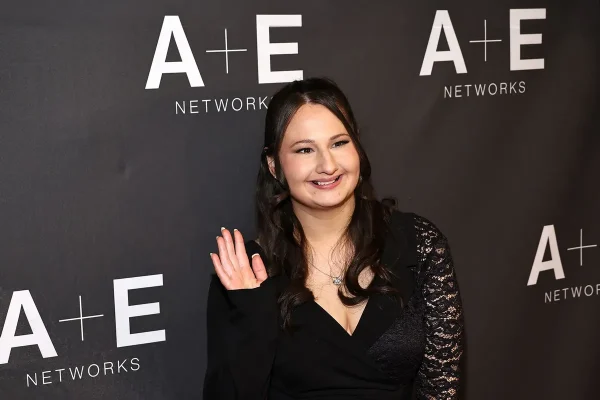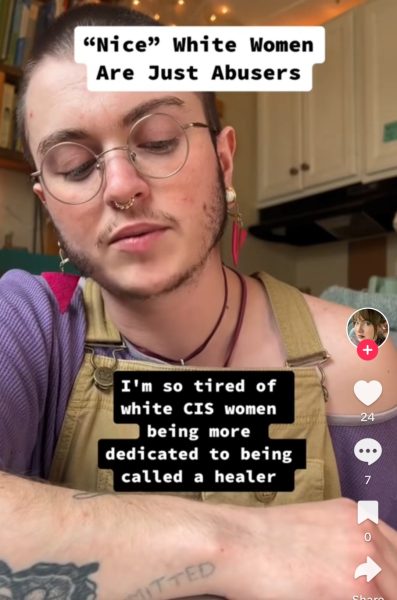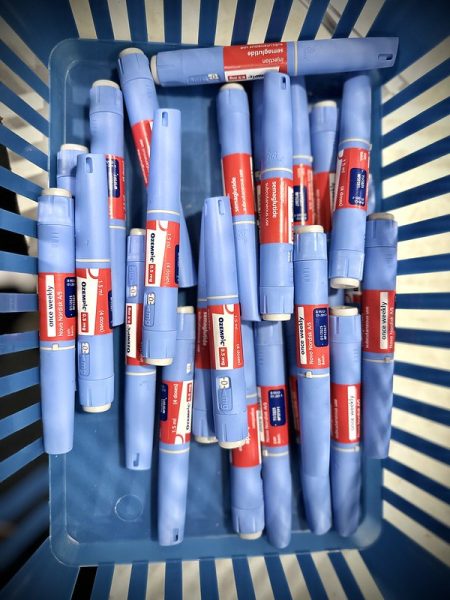Period.

More stories from Lauren Brace
This graphic was created by Kelly Malka for The Pad Project: an organization that works to dismantle the period stigma.
Sitting uncomfortably in my 5th-grade class, my lips were sealed with a secret. I sat, stood up, and sneezed in fear because that morning, I had woken up with my legs coated in blood. My mom told me I had become a woman.
However, I couldn’t tell anyone else about the horrifying sight I had witnessed that morning, for I hadn’t heard of anyone else getting their period and felt ashamed that I had gotten mine already. I felt jealous of all the girls in my class who didn’t have to deal with pads and tampons yet while I should have been focused on the boys who would never experience the same horrifying realization: for about the next 40 years, there will always be a chance of waking up to my sheets covered in blood.
If periods weren’t such a forbidden topic, maybe my 5th-grade self wouldn’t have felt so alone.
One out of every ten menstruating youth misses school during their menstrual cycle due to lack of access to menstrual products and resources.
— UNESCO
Even though menstrual cycles are extremely natural and necessary, New York Post provides disheartening and concerning statistics surrounding period shame. For example, 58% of women have felt a sense of embarrassment due to the simple state of having their period. In the workplace, an unfortunate majority of men find it inappropriate for women to discuss their menstrual cycles.
How are we to progress toward equality when a woman’s reproductive cycle which is vital to our very existence must remain a secret?
The National Library of Medicine claims that “the biological and medicalized approach to discussing menstruation frames the body as a problem, promotes women’s silence, and reinforces period shaming.” Some refer to this secrecy as a “menstrual closet,” where period products must be concealed from sight, and God forbid a blood stain to be visible through clothes. While the monthly pattern may always be an annoying process, it shouldn’t be a shameful one.
The topic is tiptoed around as if it were taboo, covering up the word “period” with euphemisms such as “time of the month” or my personal favorite, “a visit from Aunt Flo.” I’ve watched friends and adults squirm uncomfortably or claim that my period is “too much information.”
With this, I can not recount the number of times I’ve felt embarrassed to go through the checkout line with a pack of pads or walk to the bathroom with one in my hand. In 5th grade, I even watched a YouTube video describing how one can expertly craft a fake water bottle to store and keep products hidden on the journey to the restroom; the video is still ingrained in my mind due to the absurdity of it and my honest consideration of creating one of these devices.
This being said, an even more dispiriting fact comes from the period poverty that an immense number of people face in the world. A study from the United Nations Educational, Scientific and Cultural Organization (UNESCO) found that “one out of every ten menstruating youth misses school during their menstrual cycle due to lack of access to menstrual products and resources.” The pink tax and general lack of education surrounding anatomy is an appalling reality we must work to put an end to.
By erasing this stigma, future generations won’t be forced to deal with these unacceptable situations, and “How to hide your period DIY” videos will be laughed at for attempting to cover such a natural process. Confidence will regain strength with surrounding comfort from peers, and no one will feel obligated to make an excuse other than the vagina going through the bothersome process of cleaning itself.
In order to achieve this stride for equality, we all must gain the confidence to say period.

Lauren is a senior entering her final year on The Central Trend as Podcast Manager. She has a strong passion for every extracurricular she's involved in,...































































































Sofia Hargis-Acevedo • Oct 12, 2022 at 8:27 pm
YES LAUREN!!!! I am so glad you brought awareness to the “period problem.” So well written and needed to be said!
Finn Willis • Oct 11, 2022 at 7:56 pm
Preach Lauren!! What a way of writing something that flows so well and that is uncomfortable to certain people!
Eva Harshman • Oct 11, 2022 at 7:32 pm
This needed to be said!! I appreciate you and your writing so much, Lauren.
Ashley Giller • Oct 11, 2022 at 5:50 pm
That’s true. no one should have to hide it. whenever we have “the talk” at school the boys always go ewww. Yes, us girls don’t like it but we are not as dramatic.
Hailey • Oct 11, 2022 at 3:27 pm
So true. My classmates and fellow ladies should never feel like they have to bring their whole backpack to the restroom just to cover up the fact that they need a pad!